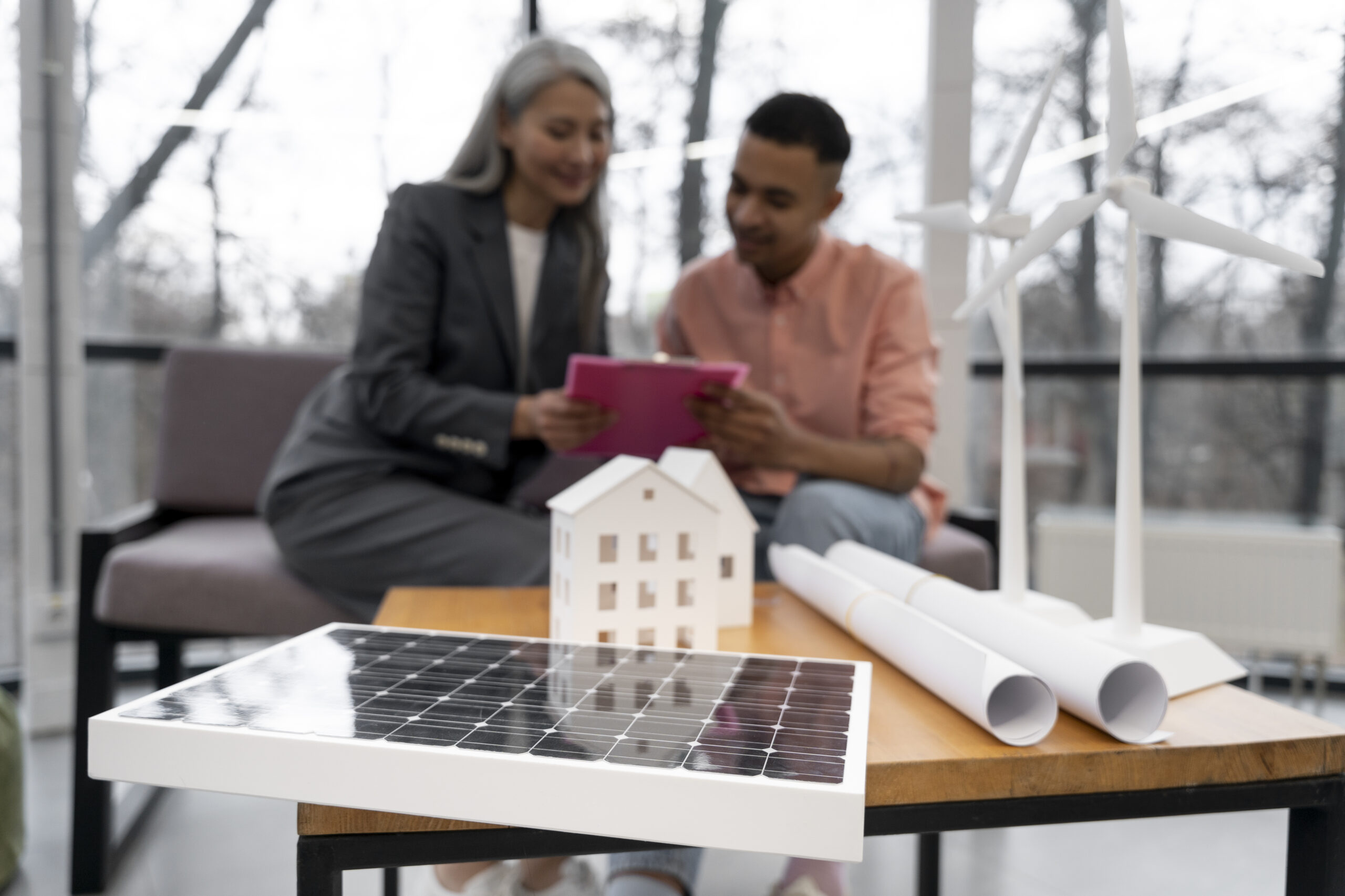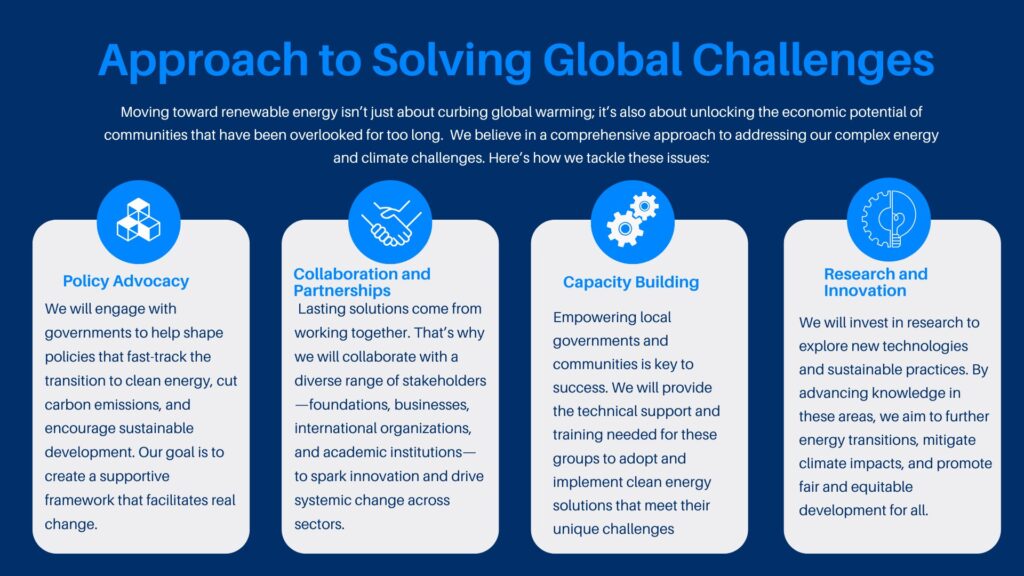The World Energy and Development Society was founded because we saw a clear and urgent need. The world is changing rapidly—clean energy is on the rise, but millions of people still don’t have access to reliable power. At the same time, climate change is hitting the hardest in places that have done the least to cause it, leaving vulnerable communities even more at risk.
Our founders believed there was a way to address both of these issues at once. They were inspired by the idea that clean energy could not only help tackle climate change but also drive economic growth, especially in underserved areas. The Institute was created to turn that belief into action—by providing solutions that work for both people and the planet.

The 2024 edition of Tracking SDG 7: The Energy Progress Report by the International Energy Agency (IEA), the International Renewable Energy Agency (IRENA), the United Nations Statistics Division (UNSD), the World Bank, and the World Health Organization (WHO) finds that the world remains off course to achieve the Sustainable Development Goal (SDG) 7 for energy by 2030. Under current policies, there are still 660 million people lacking electricity access and around 1.8 billion without access to clean cooking technologies and fuels. Progress in energy efficiency rates also lags, reaching just 2.3%, well below the level needed to reach the SDG 7 target. In 2022, roughly $7 trillion went toward subsidizing fossil fuels through direct subsidies, tax incentives, and unaccounted environmental and health costs.
This highlights an urgent need for energy transitions. Moving toward renewable energy isn’t just about curbing global warming; it’s also about unlocking the economic potential of communities that have been overlooked for too long.
